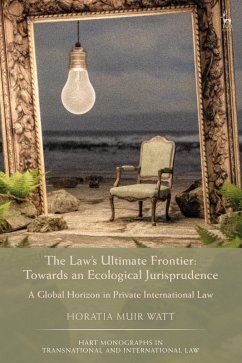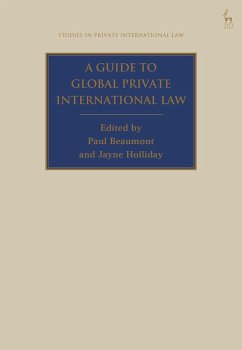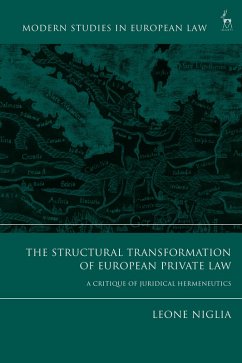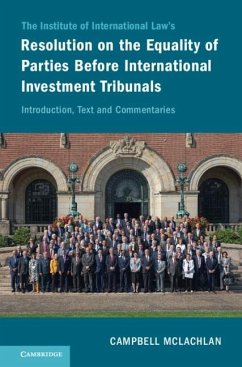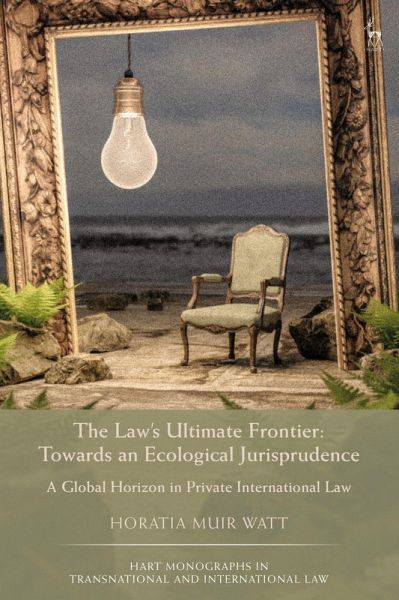
The Law's Ultimate Frontier: Towards an Ecological Jurisprudence (eBook, PDF)
A Global Horizon in Private International Law
Versandkostenfrei!
Sofort per Download lieferbar
74,95 €
inkl. MwSt.
Weitere Ausgaben:

PAYBACK Punkte
37 °P sammeln!
This important book offers an ambitious and interdisciplinary vision of how private international law (or the conflict of laws) might serve as a heuristic for re-working our general understandings of legality in directions that respond to ever-deepening global ecological crises. Unusual in legal scholarship, the author borrows (in bricolage mode) from the work of Bruno Latour, alongside indigenous cosmologies, extinction theories and Levinassian phenomenology, to demonstrate why this field's specific frontier location at the outpost of the law - where it is viewed from the outside as obscure a...
This important book offers an ambitious and interdisciplinary vision of how private international law (or the conflict of laws) might serve as a heuristic for re-working our general understandings of legality in directions that respond to ever-deepening global ecological crises. Unusual in legal scholarship, the author borrows (in bricolage mode) from the work of Bruno Latour, alongside indigenous cosmologies, extinction theories and Levinassian phenomenology, to demonstrate why this field's specific frontier location at the outpost of the law - where it is viewed from the outside as obscure and from the inside as a self-contained normative world - generates its potential power to transform law generally and globally. Combining pragmatic and pluralist theory with an excavation of 'shadow' ecological dimensions of law, the author, a recognised authority within the field as conventionally understood, offers a truly global view. Put simply, it is a generational magnum opus. All international and transnational lawyers, be they in the private or public field, should read this book.




